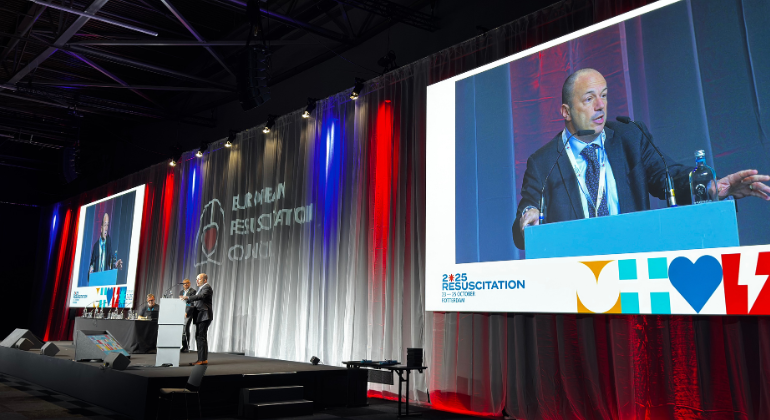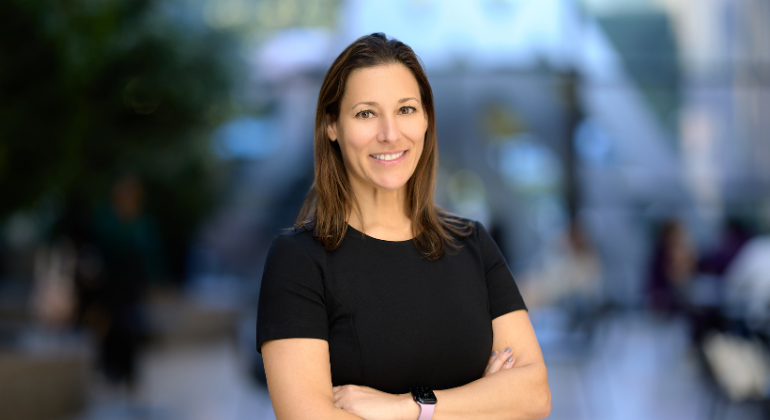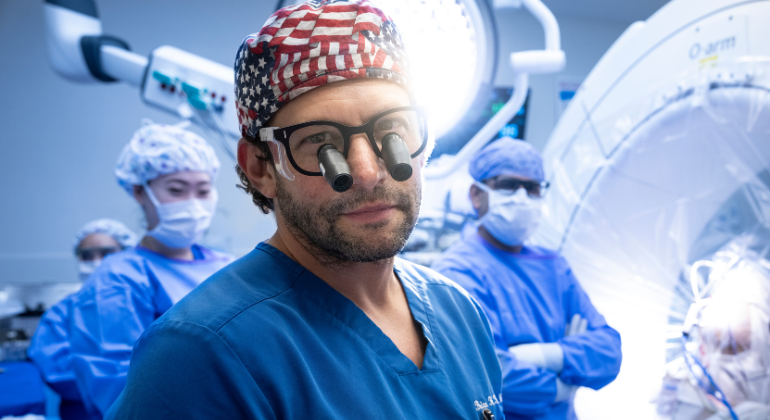Mount Sinai Hospital Launches Initiative to Improve Transitions of Care for Venous Thromboembolism Patients
The Department of Medicine at the Icahn School of Medicine at Mount Sinai has been awarded a half-million dollar grant funded by Pfizer Independent Grants for Learning & Change (IGLC) and Bristol-Myers Squibb Independent Medical Education (IME). The grant focuses on accelerating the development and adoption of evidence-based approaches to improve the safety and effectiveness of patients with the diagnosis of venous thromboembolism (VTE) as they move from one care setting to another. The Joint Commission led the evaluation process, provided oversight of the committee that made funding decisions and is solely responsible for administering and overseeing project activities for Mount Sinai and four other institutions that are receiving similar grants. The $500,000, 24 month award will fund a novel, multi-faceted initiative which includes the development of a care bundle and a smartphone app focused on transitions of care for patients with venous thromboembolism, a potentially life-threatening condition which frequently requires hospitalization and post-discharge management with medication.
VTE includes two conditions. Deep-vein thrombosis (DVT) is the formation of blood clots in the deep veins of the legs; pulmonary embolism (PE) occurs when a blood clot detaches from the wall of the leg vein and moves to the lungs, causing difficulty breathing. The treatment of both conditions involves the use of intravenous or oral anticoagulant medication and can take several months. While treatment often begins in a hospital setting, most patients transition to home or another outpatient setting immediately after discharge.
“Successfully treating venous thromboembolism requires a great deal of coordinated care,” said Eric Goodman, MD, Instructor of Medicine in the Division of Hospital Medicine at the Icahn School of Medicine at Mount Sinai and the study’s principal investigator. “It can be hard for many patients to manage their treatment on their own. We feel that this program will help provide high quality and well-coordinated care as VTE patients leave the hospital and continue their treatment as an outpatient.”
The grant, which is the largest ever received by the Department of Medicine at the Icahn School of Medicine at Mount Sinai for a quality improvement initiative, will be used to develop a new program to help VTE patients leaving the hospital to successfully continue complex treatment regimens in an outpatient setting. The study team, which also includes co-Investigators Beth Raucher, MD, Vice Chair of Medicine for Quality and Clinical Affairs; Andrew Dunn, MD, Chief of the Division of Hospital Medicine; Julie Pearson, MPH, Quality Data Analyst; Ashish Atreja, MD, Director of the Sinai AppLab and Chief Technology Innovation and Engagement Officer in the Department of Medicine; and Milan Patel, MS, Senior Systems Software Specialist for the Mount Sinai AppLab, will develop and oversee the VTE transitions of care bundle. The goal of the study is to reduce recurrence of VTE and to minimize serious medication-related adverse events, as well as to reduce hospital readmission by staying in close contact with the patient using the smartphone app. Mount Sinai has successfully used a similar app to help patients with Inflammatory Bowel Disease manage their health.
The cloud-based smartphone app will be used to collect patient data on medication adherence and symptom progression, and will facilitate communication with the care team. Data from the app and other components of the VTE Bundle will be aggregated into an electronic dashboard, which will be fully integrated with the electronic health record system used at Mount Sinai to facilitate coordination of care.
In addition, a licensed clinical social worker will meet the patients at their bedside to help them and family members become acquainted with the app and other aspects of the transition to outpatient care and necessary follow-up. Through the app, the navigator will remain in contact with patients to help them adhere to their medication plans and attend their follow up appointments, and will help facilitate communication with their primary care provider for medical issues related to VTE.
About the Mount Sinai Health System
Mount Sinai Health System is one of the largest academic medical systems in the New York metro area, with 48,000 employees working across seven hospitals, more than 400 outpatient practices, more than 600 research and clinical labs, a school of nursing, and a leading school of medicine and graduate education. Mount Sinai advances health for all people, everywhere, by taking on the most complex health care challenges of our time—discovering and applying new scientific learning and knowledge; developing safer, more effective treatments; educating the next generation of medical leaders and innovators; and supporting local communities by delivering high-quality care to all who need it.
Through the integration of its hospitals, labs, and schools, Mount Sinai offers comprehensive health care solutions from birth through geriatrics, leveraging innovative approaches such as artificial intelligence and informatics while keeping patients’ medical and emotional needs at the center of all treatment. The Health System includes approximately 9,000 primary and specialty care physicians and 10 free-standing joint-venture centers throughout the five boroughs of New York City, Westchester, Long Island, and Florida. Hospitals within the System are consistently ranked by Newsweek’s® “The World’s Best Smart Hospitals, Best in State Hospitals, World Best Hospitals and Best Specialty Hospitals” and by U.S. News & World Report's® “Best Hospitals” and “Best Children’s Hospitals.” The Mount Sinai Hospital is on the U.S. News & World Report® “Best Hospitals” Honor Roll for 2025-2026.
For more information, visit https://www.mountsinai.org or find Mount Sinai on Facebook, Instagram, LinkedIn, X, and YouTube.

Mount Sinai Health System to Roll Out Microsoft Dragon Copilot
Nov 05, 2025 View All Press Releases
NIH Awards $10 Million for the New York Regional Diabetes Research Center
Oct 23, 2025 View All Press Releases



